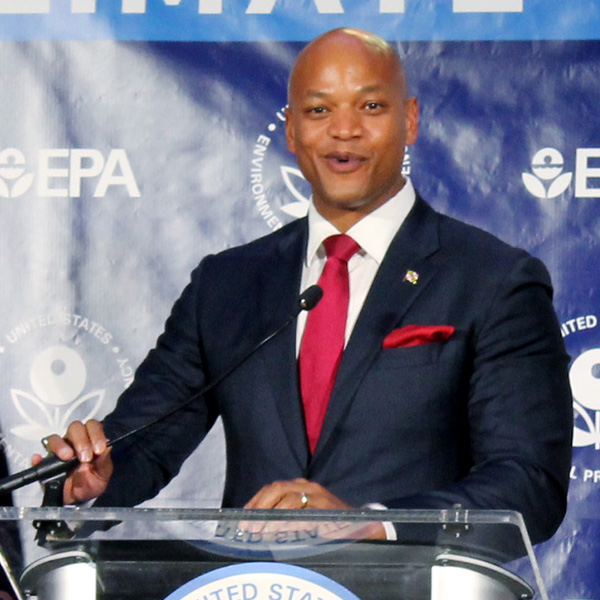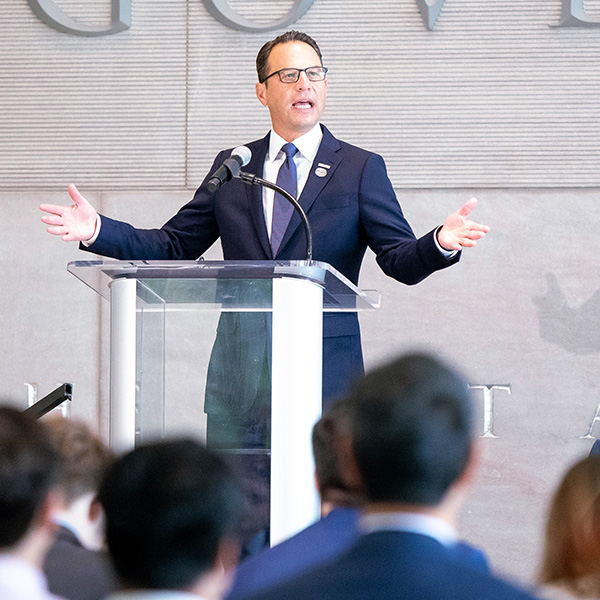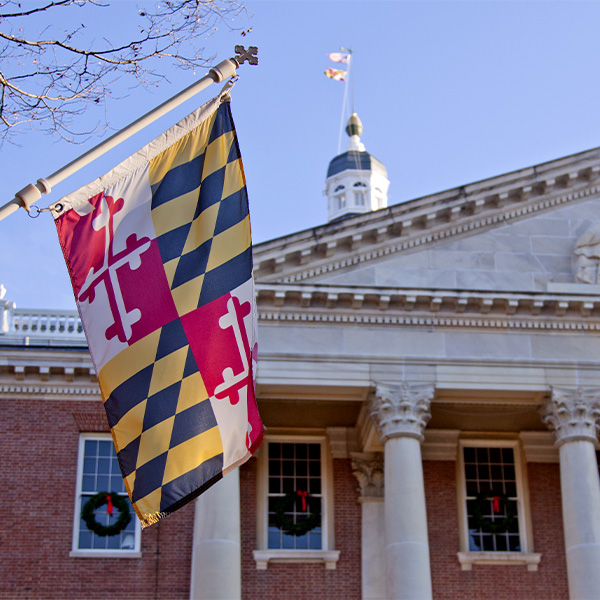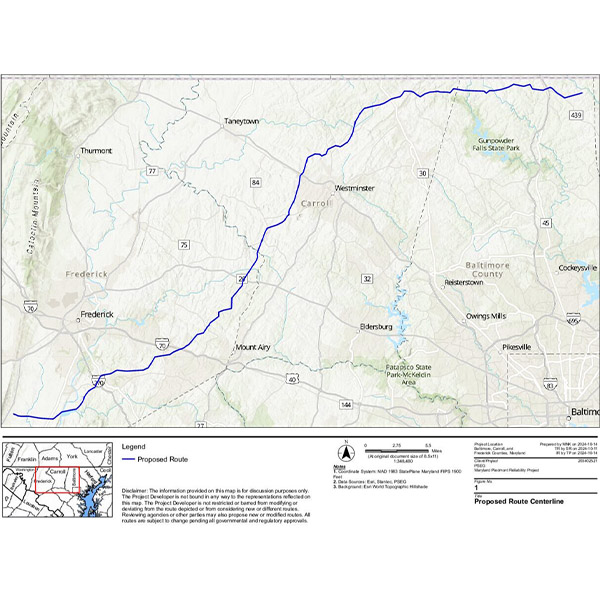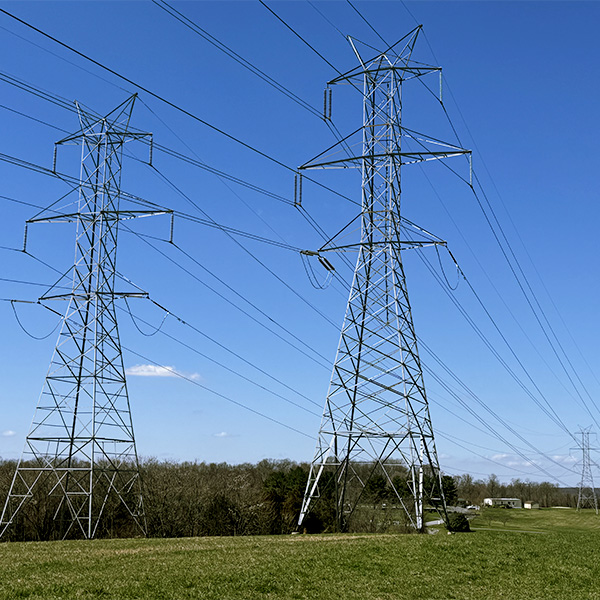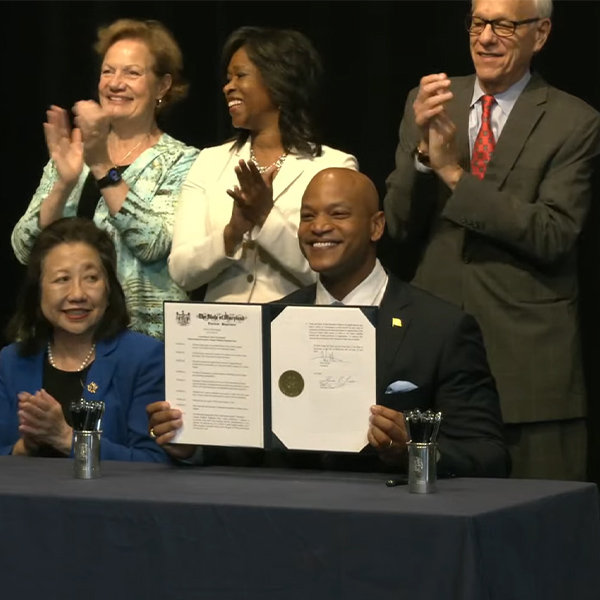Wes Moore
Maryland's 2026 legislative session could show how states facing explosive demand growth can achieve their clean energy and affordability goals despite the Trump administration’s resistance to solar, wind and storage, according to Livewire columnist K Kaufmann.
Gov. Wes Moore issued an executive order calling for reforms to boost electricity supply and ensure affordability, which will be implemented in part by the new executive director at the Maryland Energy Administration, Kelly Speakes-Backman.
Addressing a technical conference on the state of PJM, Virginia Gov. Glenn Youngkin said PJM must undertake immediate governance changes, with granting states a greater voice in decision-making atop the list.
The rising opposition to the Maryland Piedmont Reliability Project, a 67-mile, 500-kV transmission line, and general dissatisfaction with PJM and utility grid planning and interconnection policies, are driving new bills in the General Assembly.
The Maryland Piedmont Reliability Project is a proposed 67-mile, 500-kV transmission line that could be vital to grid reliability in the state but has already sparked opposition.
Maryland has been promoting itself as a nearby, attractive alternative to Northern Virginia, and data center developers are starting to take a closer look.
Maryland Gov. Wes Moore (D) signed a sweeping executive order calling for the state to establish a zero-emission heating equipment standard and a new clean heat standard to be added to the state’s Renewable Portfolio Standard.
Getting bills through the Maryland General Assembly often involves compromises and tradeoffs, even with Democrats controlling the House of Delegates, the Senate and the governorship.
With Maryland facing rising budget deficits, legislators are focusing on removing barriers to zero-emission technologies, rather than proposing new funding.
More than 70 energy-related laws have been introduced in the first month of the Maryland General Assembly’s 2024 session.
Want more? Advanced Search

